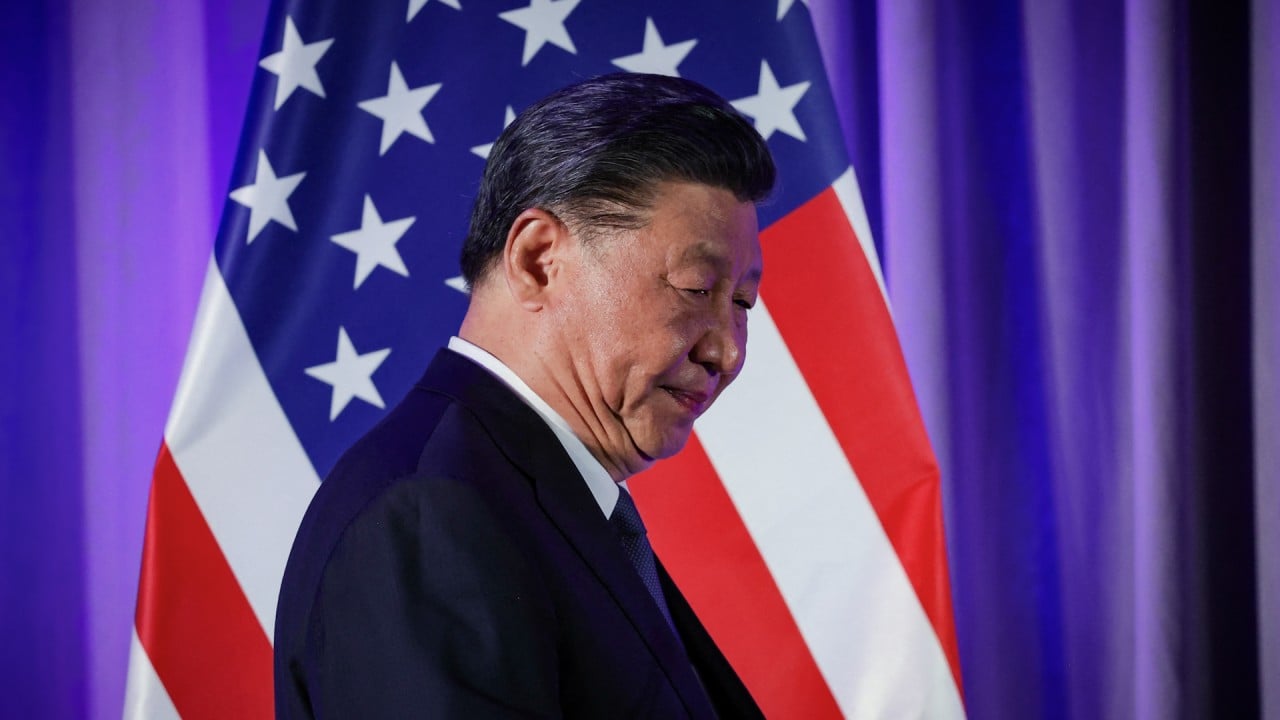
Xi-Biden talks open the door to more constructive ties that will benefit the world
- The leaders of China and the US may not have agreed on everything, but clearly both were certain about one thing: lines of communication must be kept open at all times
The summit between presidents Xi Jinping and Joe Biden on the sidelines of the Asia-Pacific Economic Cooperation gathering in San Francisco has opened a critical window of opportunity to put the bilateral relationship back on track. It followed a turbulent period since their last meeting a year ago, since which ties plunged to a new low.
With the United States now entering an election season, it is likely to have been their last chance to meet until at least 2025.
So this meeting was a chance to lay the foundations of the relationship for more than a year to come. It was important for the two sides to set the right tone.
There was no room for surprise upsets. Accordingly, they ensured the event was very carefully prepared and choreographed to avoid it being derailed by an unexpected incident.
Nonetheless two events involving Hong Kong on the eve of the summit did nothing to help. The city’s government was compelled to issue a rebuttal of the “untruthful remarks and smears” in a US commission report that says Hong Kong has transformed into a mainland Chinese city due to Beijing’s interference.
And a US federal pension fund dropped the city from its investment portfolio.
Observers did not hold high expectations of the summit. But over two hours of talks and a working lunch, the two leaders generally achieved what was realistically expected of them, even if that included agreeing to disagree at times rather than tackling fundamental differences head-on.
Reopening channels of communication
An important outcome is an understanding that communication would remain open at the highest level, after a year of severe disruption to usual channels following then House speaker Nancy Pelosi’s visit to Taiwan last year. “[Xi] and I agreed that each is willing to pick up the phone and call directly and be heard immediately,” Biden said.

The purpose of the summit, before going into concrete issues, was to establish the framework for the foundation of China-US relations, including strategic intentions. China sees agreements between the two presidents as the foundation for moving the relationship ahead.
Indeed, Xi’s principal purpose for being in San Francisco was the China-US summit rather than the Apec summit. That said, it is unrealistic to expect that one meeting between Xi and Biden, no matter how well it went, would dispel pent up misunderstanding and suspicion between the two sides.
But it can only help for them to have led formal talks between their delegations followed by a more intimate working lunch. China’s main message is that it is not interested in challenging US global leadership but nor does it want the US to suppress China’s rise.
Among concrete results of the summit, the two sides agreed to cooperate on narcotics control and artificial intelligence governance, and resume military-to-military communication. But China voiced its continuing discontent with several US policies it believes hold it back, including export controls, investment reviews and unilateral sanctions.

On agriculture and trade there is some consensus on cooperation.
China acknowledges different views on many things and also the need for a mechanism to manage them.
The elephant in the room
For all the practical issues that were addressed, however, Taiwan remains the single most critical and sensitive to China. Xi spent some time talking about it.
China wants the US not just to say it is against Taiwan independence, but also to take action, such as halting arms aid to Taiwan. Xi said reunification with Taiwan was inevitable, without setting a timetable.
Xi and Biden working to enhance trust, says Chinese foreign minister
This is a way of allaying fears that China will take drastic action over Taiwan any time soon.
Affirming the status quo, Biden said in his talks with Xi: “We maintain the agreement that there is a one-China policy and that I’m not going to change that.”
The two sides agreed to increase people-to-people relations severely curtailed in recent years. Concrete elements are an increase in direct China-US flights and simplification of some visa processes.
That reflects a need not just for the top leaders to keep talking, but for restoration of engagement between the two sides at all levels comparable with people exchanges before the Covid-19 pandemic. Only by doing that can they transform the overall bilateral tone and perception and pave the way for real improvement.
Hong Kong slams US report accusing Beijing of interfering in city affairs
On the Ukraine and Gaza wars, the two sides exchanged views, against the background of China’s call for peaceful solutions based on a negotiated settlement of competing claims.
People-to-people exchanges play a very significant role by giving leaders a platform for improving what Xi describes as the world’s most important bilateral relationship, between China and the US.
Xi says rightly that continued rivalry and confrontation risk unbearable consequences. He noted that China and the US had different histories and social systems and very different development agendas.
But that should not obstruct a constructive bilateral relationship if the two sides enjoy mutual respect and peaceful coexistence.


